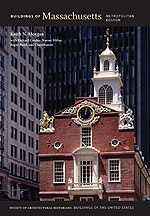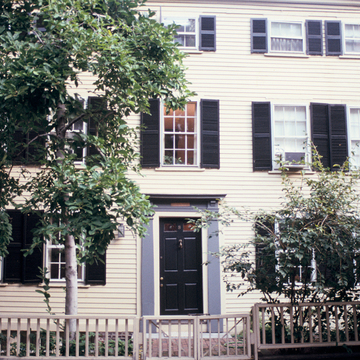In the opening decades of the nineteenth century, the African American community of Boston began to concentrate in this area of Beacon Hill. Here white housewrights built wooden residences that became the earliest black-owned houses in Boston. On Smith Court, the demolition of a ropewalk in 1799 allowed for new buildings rented or sold to shoemakers, clothing dealers, chimney sweeps, and bootblacks. In 1839, James Scott, an active opponent of the Fugitive Slave Law in 1850, purchased 3 Smith Court (NHL), a three-story clapboard house built in 1800. In 1851 he rented part of the structure to William C. Nell, an integration activist and the country's first published black historian. At the end of the street, eight-foot-wide Holmes Alley provided neighborhood residents a back passage to nearby jobs. Not surprisingly,
You are here
Smith Court
1799–1851. 3 Smith Ct.
If SAH Archipedia has been useful to you, please consider supporting it.
SAH Archipedia tells the story of the United States through its buildings, landscapes, and cities. This freely available resource empowers the public with authoritative knowledge that deepens their understanding and appreciation of the built environment. But the Society of Architectural Historians, which created SAH Archipedia with University of Virginia Press, needs your support to maintain the high-caliber research, writing, photography, cartography, editing, design, and programming that make SAH Archipedia a trusted online resource available to all who value the history of place, heritage tourism, and learning.















